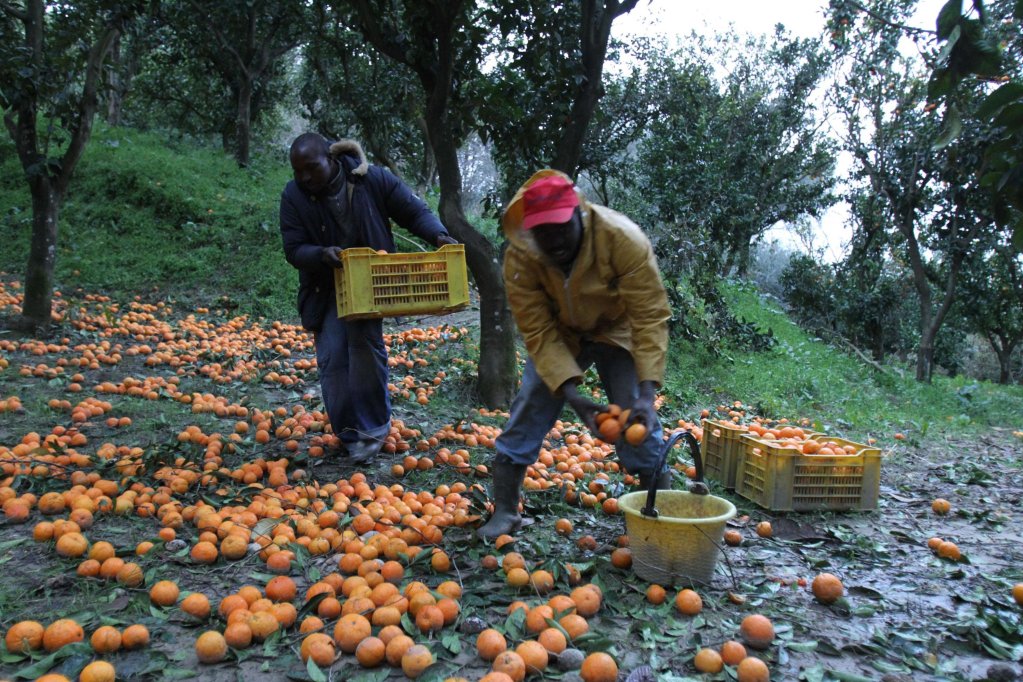Migrant workers in southern Italy continue to endure exploitation, particularly those harvesting citrus fruits in Piana di Gioia Tauro, Calabria, according to a new report from Doctors for Human Rights (MEDU).
For the 12th year in a row, MEDU has provided medical and legal aid to migrants in the region through its mobile clinic as part of the project “Open Country: Laboratory of Territorial Practices to Promote the Dignity of Life and Labour.” The organization has worked tirelessly to highlight the difficult living and working conditions of migrant farmworkers and advocate for better protections.
Between November 2024 and February 2025, MEDU’s team—including doctors, coordinators, cultural mediators, and legal experts—offered support to 371 individuals. Their mobile clinic operated in San Ferdinando, Contrada Russo in Taurianova, and Largo Bruniani in Rosarno three times a week. Most of those assisted were men aged 31 to 50 from West Africa, the Maghreb region (Tunisia, Morocco, Mauritania), Sudan, Cameroon, and Bulgaria.
Despite the harsh conditions, 87% of workers had legal residency in Italy, with 25% holding subsidiary protection, 17% having work permits, and another 17% under special protection status. However, 10% lacked a residence permit, making them even more vulnerable to exploitation.
MEDU’s findings also showed that many migrant workers still face low wages and poor contracts. Around 70% had short-term contracts ranging from one week to three months, and many reported earning less than the agreed salary while receiving little to no vacation time. Meanwhile, 30% worked without any contract, exposing them to even greater exploitation.
The report also revealed concerning details about payment methods and housing conditions. Among 66 workers surveyed, 35% were paid only in cash, 33% through bank transfers, and 32% through a mix of both. Additionally, 58% of 55 respondents never received a pay slip, limiting their ability to claim employment rights.
Fifteen years after the Rosarno riots of 2010, when African migrant workers staged violent protests against exploitation, MEDU warns that little has changed. Many migrants still live in makeshift shelters or on the outskirts of towns, unable to find proper housing. Their precarious conditions leave them vulnerable to blackmail, low wages, and labor abuse.
Despite ongoing efforts by human rights organizations, MEDU stresses that urgent action is needed to protect migrant farmworkers and improve their working and living conditions in Italy.

